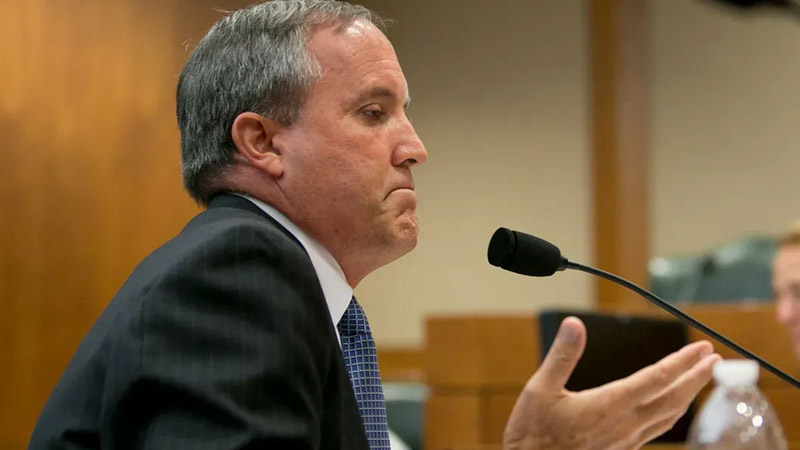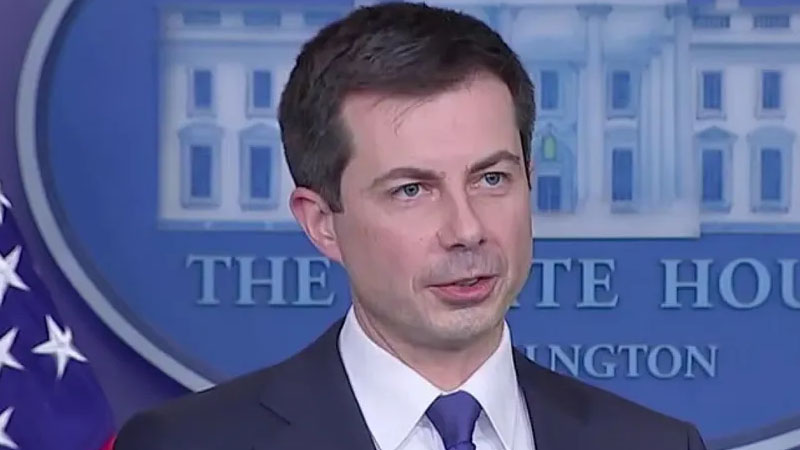Texas House ethics investigators lay out years of alleged misbehavior by Attorney General Ken Paxton

(Getty Images)
A day after Texas Attorney General Ken Paxton made a statement encouraging House Speaker Dade Phelan to quit, House ethics investigators informed a group of state legislators that Paxton misused his official position for years by providing political favors for a campaign donor. “The actions were grossly outside of the line of established norms,” said investigator Mark Donnelly.
Four experts in public integrity law and white-collar crime testified before the House Committee on General Investigating in a rare public hearing. It all started when Paxton requested $3.3 million in taxpayer funds to settle a whistleblower lawsuit. Four former deputies, characterized as conservative government workers, alleged they were fired after complaining to authorities.
“Would you just clarify that again,” said Rep. Andrew Murr, R-Junction. “You said nearly every single person that your team interviewed as part of this process, that nearly every single person expressed fear and concern about retaliation from Ken Paxton.”
“Independently based on their own knowledge of the facts and the circumstances leading up to their presence in our office or on the phone, that is absolutely accurate,” said lead investigator Erin Epley.
Many instances were detailed by ethics investigators in which they believe Paxton disregarded official procedures to benefit Nate Paul, a real estate investor.
Among the allegations are that Paxton improperly assisted Paul in a dispute with a charitable foundation, violated open records law to obtain information about an ongoing federal investigation of Paul, and rushed a legal opinion in Paul’s favor.
According to investigators, Paxton hired an inexperienced outside counsel to assist Paul with his legal challenges on the advice of Paul’s attorney. In exchange, Paul facilitated high-end renovations to the attorney general’s home and employed a woman Paxton allegedly had an extramarital affair with.
Rep. Ann Johnson, D-Houston, asked, “Is it fair to say the OAG’s office was effectively hijacked for an investigation by Nate Paul through Attorney General Ken Paxton?” Epley, a former federal prosecutor, replied, “That would be my opinion.”
The shocking testimony came during the final days of a Republican-dominated legislative session. Phelan has spoken out against using public funds to cover Paxton’s settlement. Cait Wittman, the speaker’s spokesman, said in a statement that the hearing’s revelations were “extremely disturbing.”
“The attorney general appears to have routinely abused his powers for personal gain and exhibited blatant disregard from the ethical and legal propriety expected of the state’s leading law enforcement officer,” Wittman said.
Shortly after the hearing began, Paxton went on a radio show, doubling down on accusations that Phelan was drunk on the House floor one evening and expressing disappointment with the House’s priorities this session.
“This is a level that is shocking to me, especially from a Republican House. This is what they have time to do, as opposed to some of the important things like school choice,” Paxton said on The Mark Davis Radio Show.
“I’m concerned about the entire House, given the lack of work,” Paxton continued. In a statement, Paxton called the testimony “false” and said every allegation can be “easily disproved.” The meeting ended with investigators listing the ways they believe the attorney general violated numerous state laws. They range in severity from misdemeanors to felonies.
“Another was a dereliction of duty,” said Donna Cameron, another ethics investigator. “To be negligent is one thing you know, but malfeasance when you are actively and intentionally doing things to the detriment of the offense, and to your oath and to the responsibility that you have to the state of Texas.”
The general investigative committee has extensive jurisdiction to investigate any public official’s suspected wrongdoings, as well as censure and propose that the Texas House draft articles of impeachment against that individual.


